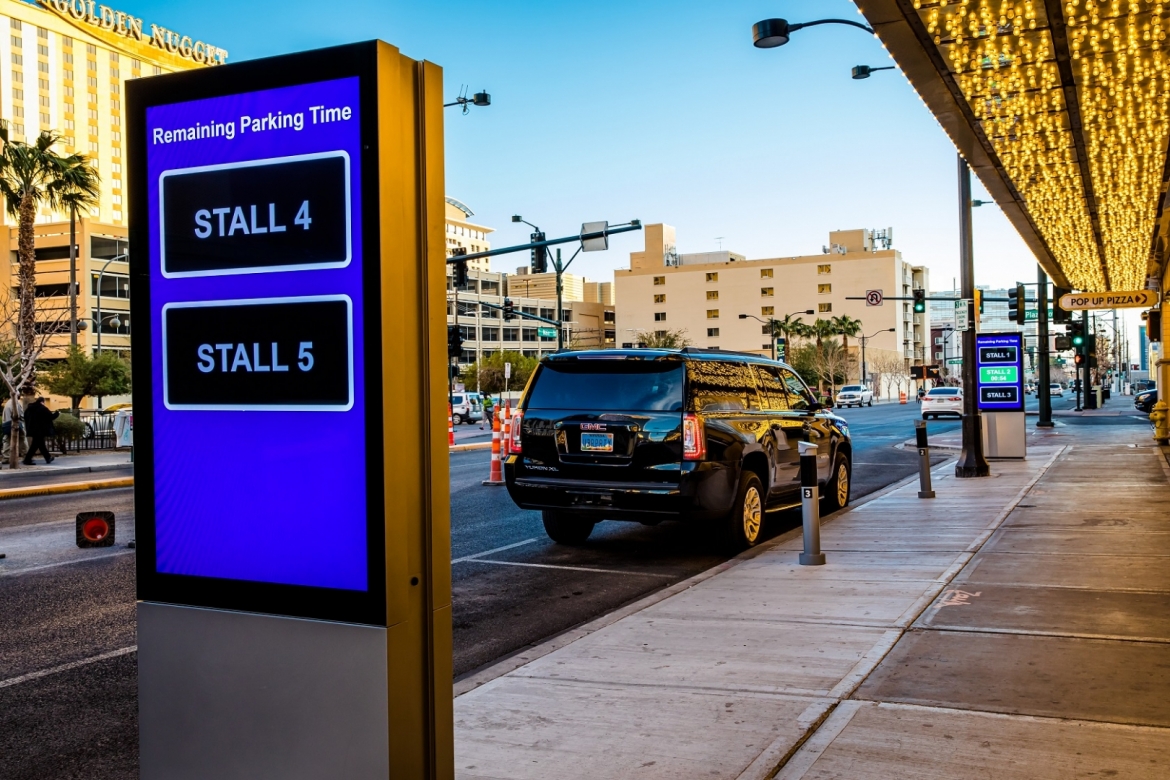 From building smart solutions to improve on-campus transportation to testing next-gen wireless networks, the Cox Connected Environments Collaboratory team is busy creating new smart solutions at ASU’s SkySong. There, the team is also exploring the newest innovations being deployed by Cox Communications. A prime example of this is the curbside management kiosk project that Cox2M recently announced with the city of Las Vegas.
From building smart solutions to improve on-campus transportation to testing next-gen wireless networks, the Cox Connected Environments Collaboratory team is busy creating new smart solutions at ASU’s SkySong. There, the team is also exploring the newest innovations being deployed by Cox Communications. A prime example of this is the curbside management kiosk project that Cox2M recently announced with the city of Las Vegas.
With a focus on improving the visitor experience through increased traffic safety in the area, Cox2M responded to a Request for Information (RFI) put out by the City of Las Vegas to help manage the curb area downtown, explained Derrick Hill, vice president, Cox Business Las Vegas. “With the increase in usage of rideshare, the downtown businesses were seeing an increase in volume and vehicles lingering to pick up rides,” said Hill.
Smart tech = smart solutions
 Cox’s curbside solution? Using both kiosks and video analytics to manage the curb. Today, the kiosks serve two main functions, as explained by Hill (shown right):
Cox’s curbside solution? Using both kiosks and video analytics to manage the curb. Today, the kiosks serve two main functions, as explained by Hill (shown right):
-
Act as the visual cue for the drivers entering the curbside zone. “As drivers pull up, we wanted to have something visual they could see that indicated they needed to move, so the kiosks get triggered and display a countdown timer.”
-
Provide helpful information to visitors. “The kiosks are double-sided, so on the other screen we are working with the city to display helpful content, including digital advertisements and public service announcements.”
Together, the technology helps move drivers along the curb safely and efficiently, while also providing an outlet of information to any pedestrians in the area.
Create once, deploy everywhere
So how can the smart technology created for the city of Las Vegas be replicated on ASU’s campuses? Hill suggests that any curb requiring dynamic usage — moving zones, loading and unloading, commercial delivery — could all benefit from a curbside management solution. Hill also shared that additional testing could continue to be developed at the Cox Collaboratory: “Having a dedicated space where we can physically test these devices is very valuable versus needing to put solutions into the real world to test,” said Hill.
And because scalability is always the goal for smart city-focused innovation, Hill sees the kiosk technology working to enable better interactions between cities, developers and campuses with their consumers, whether they are residents, visitors or students. “It becomes an important touch point to guide and inform those consumers,” said Hill. “There is value in leveraging kiosks and curbside management in any busy commercial district where you would expect a higher volume of vehicle and pedestrian traffic.”
Have a problem that could benefit from the smart tech solutions of the Cox Collaboratory or a big idea on how to solve it? Share your concept with the Collaboratory team!